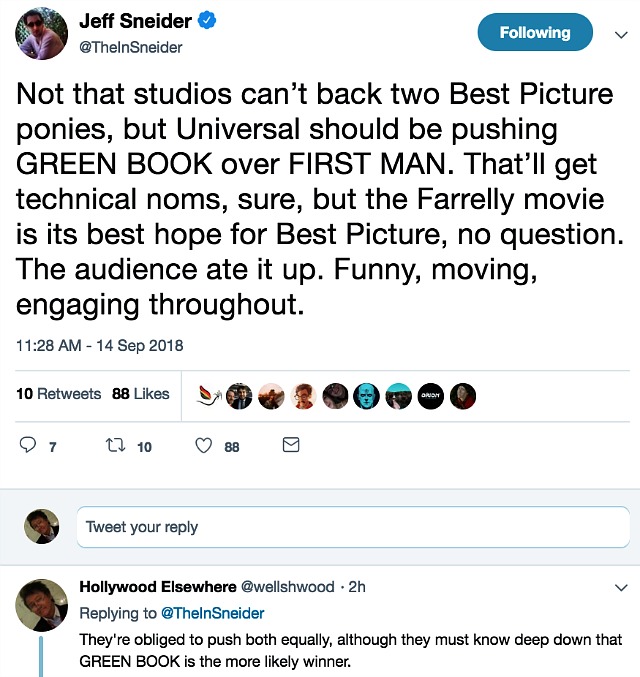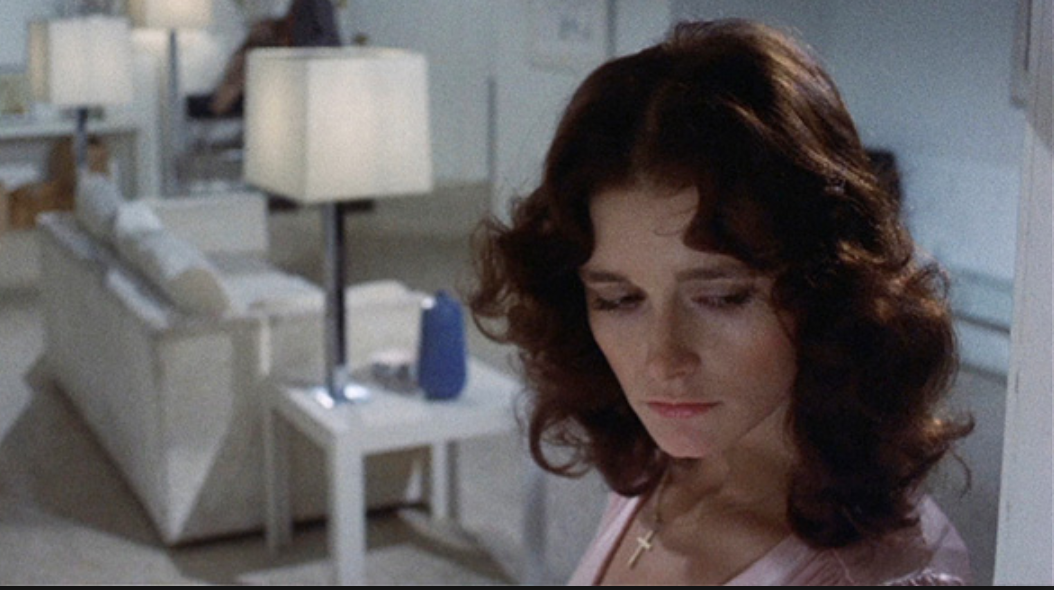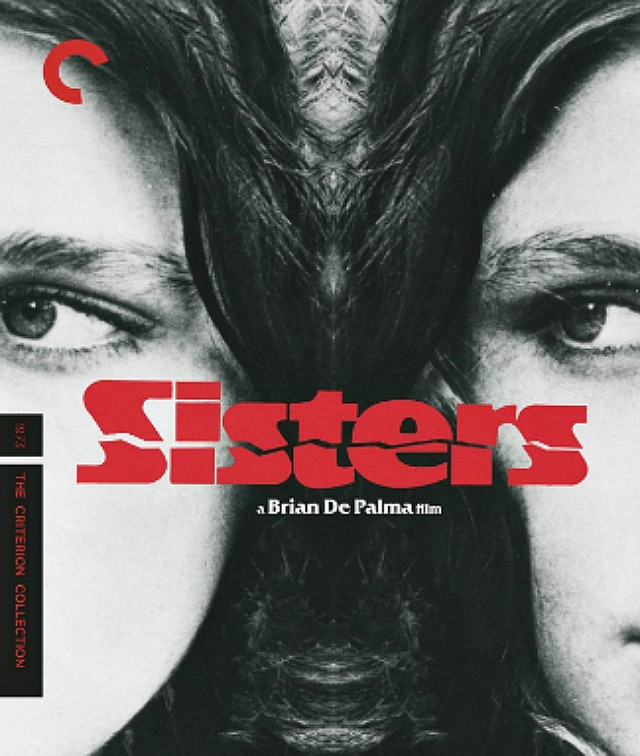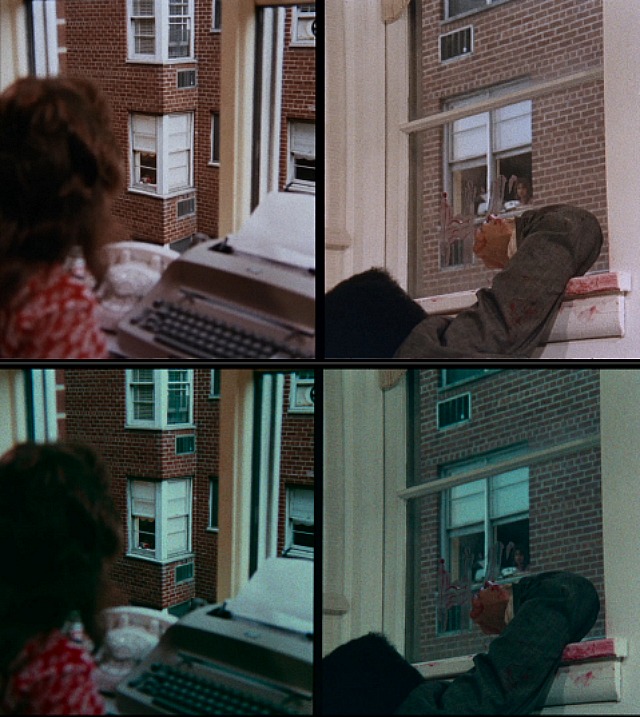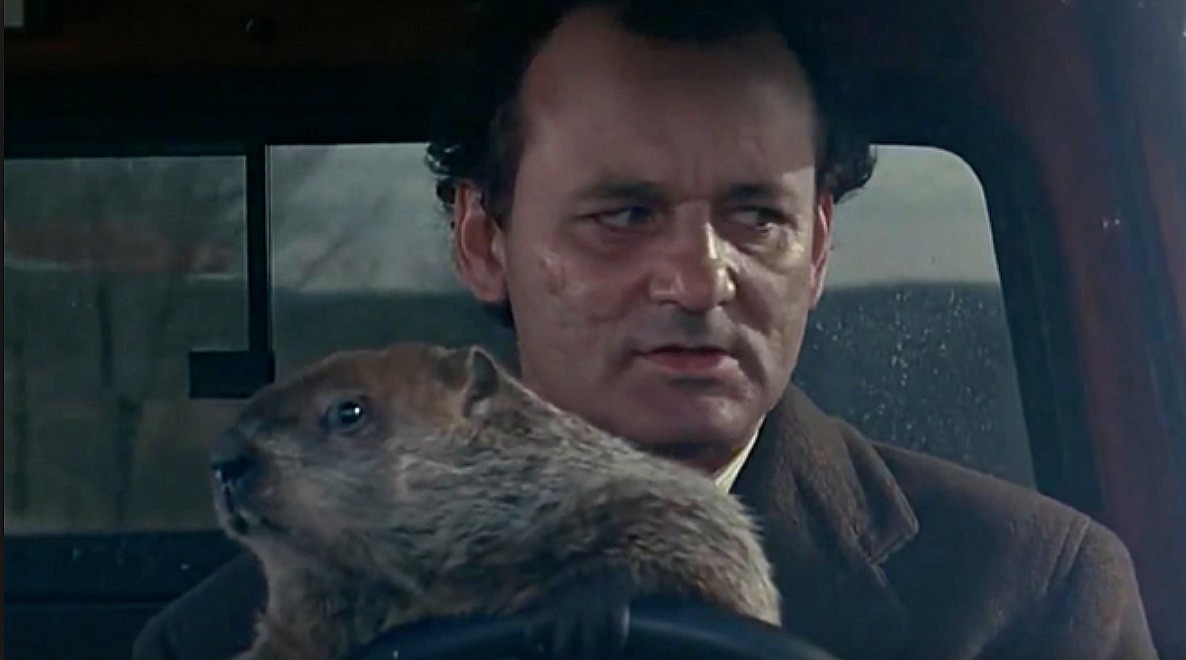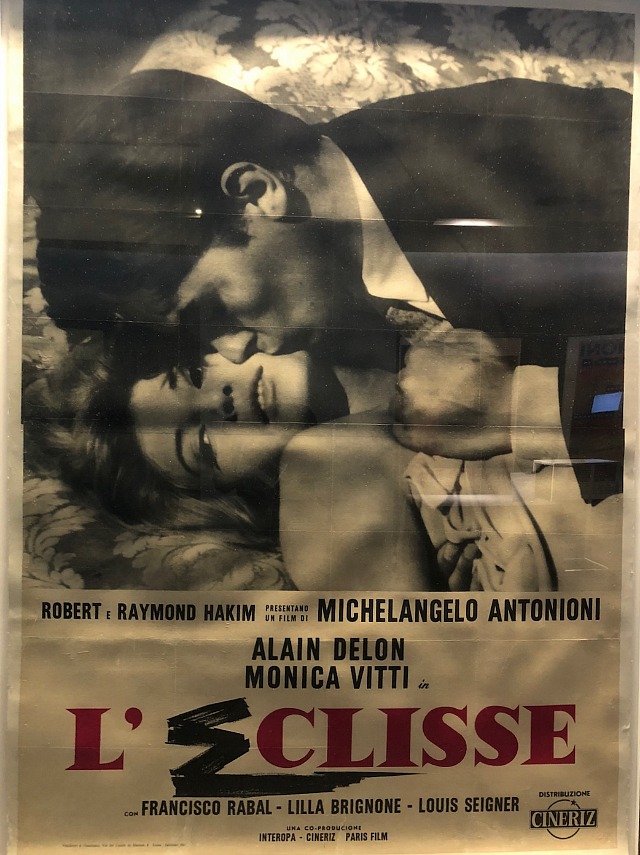Three or four days ago Bloomberg’s Virginia Postrel re-posted a solution to the Best Picture Oscar problem (tickets buyers preferring mass appeal or FX-driven popcorn flicks, Academy members preferring to honor movies that are actually good in some kind of profound, refined or zeitgeist-reflecting way) that I think makes a lot of sense.
The short-lived Best Achievement in Popular Film Oscar idea died because (a) it was too vaguely defined and (b) it would have essentially denigrated the potential contenders in this category by categorizing them as popular but a bit slovenly — i.e., lower on the cultural totem pole than bona fide Best Picture nominees.
Postrel’s idea is to not cast indirect shade upon mass-appeal films but simply create two Best Picture categories based on admissions — a Spirit Awards-type Best Picture Oscar for films that have sold less than 10 million tickets and a mainstream Best Picture Oscar for films that have sold more than 10 million tickets. Simple, no shade, and fully reflective of how the the movie-watching world is defined these days.
This is it! This really and truly solves the problem, and nobody (not even Kris Tapley, Mark Harris or Jeff Sneider) could possibly argue against it. Attention John Bailey, Dawn Hudson and all the ships at sea — this double-Oscar solution will boost Oscar telecast ratings, save the Oscar brand and make everyone completely happy in a fair, even-steven way.
Now watch the Academy dither and delay and probably never act upon it. But I’m telling you straight and true that this is the answer on a silver effing platter.
It’s the admissions, stupid!
In Postrel’s words: “[The solution would be to] emulate journalism awards that divide publications by circulation: Divide the Best Picture awards into two categories, best picture (under 10 million tickets sold) and best picture (10 million tickets or more). Just as publications with wildly different circulations operate under different constraints, so do movies aimed at different-sized audiences.
“Rather than stigmatizing one or both categories, this division would treat them as equally valid, just as the Oscars do with short versus standard-length films. Adding a December 31st cutoff date for counting tickets would encourage less crowding of Oscar-worthy pictures in the waning weeks of the year.
“Ten million tickets puts a movie in about the top 40 for the year, a large-enough universe to offer diversity in both genre and artistic ambition. For 2017, nominees might have included Baby Driver, Blade Runner 2049, Coco, Dunkirk, Get Out, Girls Trip, It, Logan, Wonder and Wonder Woman.”
Final Postrel commentary: “The Academy Awards have two purposes. One is to let industry insiders honor their peers and congratulate themselves for jobs well done. But their more important goal is to get the general public to appreciate and patronize the movies — and thereby to keep the insiders in business.
“In that pursuit, the Oscars need to find ways to recognize that popular taste isn’t always bad. You don’t win fans by insulting your audience. And many popular movies are actually excellent, even if it takes hindsight to realize their merits.”


